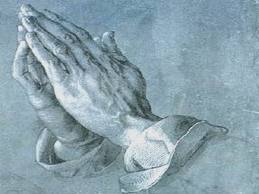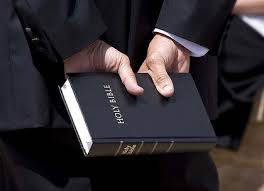THE PARANORMAL
Young-Ha Kim, a South Korean writer, recently wrote that in the twenty-first century it is not uncommon for Korean C.E.O.’s to use fortune tellers and shamans to do their business. They use shamans who observe the shape of one’s eyes, nose, and foreheads to determine whether they will be reliable business partners. They hire fortune tellers to see whether business will be good or bad based on one’s birthday. Why? Because they believe that the occult gives them direction and insight to make wise business decisions. This author is extremely skeptical as we may be also. Many people are skeptical about occults because they don’t understand them. However, the paranormal is very common place in many circles today that many don’t see it as dangerous. Some Christians, it is reported, even read their horoscopes or get their palms read because they consider them harmless. The Bible doesn’t present them as harmless, because they encourage us to seek guidance apart from God. In the Book of Deuteronomy, God warns His people against horrific occult practices because they lead to death rather than life. Truth is found in God, and He gives us all the direction we need.
Read Deuteronomy 18:9-11
The Scriptures in this study are tough to read but they tell of “detestable customs” about which God gives strong warnings for the Israelites, and all of us today, to avoid. Moses uses this “detestable customs” phrase which is translated from the Hebrew word “toeboth” that means something abominable before God. This section is part of the “leadership laws” found in chapters 17-18. These chapters tell of God’s design for the leaders of Israel, namely, the laws of prophets, priests, judges and kings. Deuteronomy 18:9-14 focuses on the call for faithful priestly and prophetic leadership among the people. These leaders were vital to Israel’s well-being. Faithful priests led God’s people to understand their relationship with God (through teaching, sacrifice, and prayer) while prophets were “covenant enforcers”. In fact, it was when these leaders failed that Israel descended down into sin. So, faithful leadership was vital to the spiritual health of the people. The quality of their lives depended upon it.
But the temptation to stray from God and His ways was always with Israel. Moses proclaimed that Israel would be tempted to stray to the occult. Some define the occult as tapping into supernatural or mystical power. But this definition of the occult can be misleading. We need to remember that the Christian faith is, at its root, tapping into supernatural power- Jesus. The Spirit of God indwells those who place their faith and trust in Jesus Christ, enabling them to live well before the Lord. So, the Christian faith is about tapping into something other than the natural. The apostle Paul, for example, consistently spoke of what it means for a Christian to a “spiritual” person (1Cor. 15; Gal.6:1; Eph. 6:12; Col. 1:9). We should never forget that the Christian faith is living according to the supernatural power of God. Deuteronomy 18 depicts the occult as a practice of engaging pagan or demonic supernatural power that leads to death. So, the difference is that the occult is from Satan, which is a very different power than the power of God.
Moses mentioned eight occultic, detestable practices in verses 10-11. “No one among you is to” Sacrifice his son or daughter in the fire. We have read that the Phoenicians engaged inhuman sacrifice in or around the time described in Deuteronomy. The Old Testament records horrific child sacrifices (2 Kings 3:37; 16:3; 23:10). For pagans, human sacrificing was a way of talking about burning a sacrifice to their gods. Leviticus 20:2-5 reveals such practice to be absolutely abhorrent. The pagans did this to manipulate a god to act on one’s behalf, which is detestable. “Practicing divination” has to do with rituals or acts that are meant to tell the future or give omens. The Old Testament describes a number of rituals that could qualify as divination. In Lev. 19:26 it uses this language to describe witchcraft. The idea behind divination is to discover the mind, plan or will of a pagan god. To “Tell fortunes” in Hebrew has to do with making something visible which was formerly unclear. Another way to translate the Hebrew word “me’onen” is “sorcery”, which may have to do with consulting the dead to find out about the future or about one’s fortune. This is similar to a “medium” who can or tries to speak with ghosts or the deceased to discover direction or insight for life. King Saul did just this in the witch of Endor story in 1 Samuel 28:3.
The goal of each of these practices, and the others mentioned by Moses, was to manipulate a god, a dead person, or events to one’s own favor. These practices were taught, learned, and passed on to the next generation. The threat for the people of God was so serious that Moses instructed the people to avoid at all costs such manipulative practices. They brought pain, not comfort; they brought confusion, not direction; they brought death, not life. In short, the occult promises something that it cannot provide, at least not for long.
Read Deuteronomy 18:12-14
An interesting point about Moses’ instruction is that he assumed these pagan practices, at least sometimes, worked. Just as the Egyptian sorcerers performed the same miraculous actions of Moses for the first three (Ex. 7:1-8:7) and the witch of Endor really did call up Samuel from the dead (1 Sam. 28), these practices apparently were effective. The Lord does not or did not forbid these practices because they did not work. The Lord forbade these practices because they turned Israel away from their God. God required Israel to be blameless. The language here indicates that Israel was to be spotless and pure. This is the same terminology used to describe a sacrificial animal fit to be offered to God. As Israel was blameless they did not die; in their sacrifice to the Lord they found life. Instead of following the occult practices that lead to death, as we see from the nations being driven out of the land (v.14). God calls His people to be blameless and discover life in Him, in His land, under His rule.
In the world today, all too often we flirt with danger and evil. While working at P&G I went to New Orleans many times to work with the Folgers plant. This is a beautiful city, rich in heritage, sights and sounds. It is filled with some of the best human culture, but it is also filled with the worst of human culture. We went to Bourbon Street for some very good places to eat, but were told to leave the street by 9:15 PM. So, we left no later than 8:45 PM. I did not experience any of the occult shops or other horrific shops and practices- but we were told they existed. We cannot flirt with disaster or evil. We must understand the occult and the lies it tells. Only Jesus gives the life and guidance that keeps us from the occult that is falsely advertises as okay.
There are some lasting truths from Deuteronomy 18:12-14:
- Occult practices falsely proclaim that guidance and direction comes from consulting the dead rather than from open and honest conversation with God.
- Occult practices falsely proclaim that analyzing the heavens can combat fear of the future rather than trusting in God and His Word.
- Occult practices falsely proclaim that we can manipulate God to do what we want through human sacrifice or other ritual acts when God has already proclaimed His plan to us and with us.
- When we die to self and sin, we discover life in God.
Read Deuteronomy 18:15-18
The Lord called Israel to complete devotion. He is the God of life (Deut. 30:15-16) and so the direction, help, guidance, and life for which Israel longed appeared in God alone. For this reason, God demanded that His people avoid any kind of occult practice, and He also commanded His prophets to speak only His Words. Verses 15-18 seem to shift abruptly from a focus on priests and occult practices to describing a prophet like Moses whom God would raise up. However, it is not as much of a change of subject as one might think. Most likely, many in the audience of Moses’ teaching wondered what they would do after their great leader was dead and gone. Who would hear God on their behalf? Who would pray for them as Moses had done? Would it be Joshua or Caleb? Who would lead them? Who would speak words of comfort, direction, or rebuke like Moses had?
Moses clearly outlined in verses 9-14 whom they should not go to for direction or leadership: those who practice the occult. But then he states howt the Lord told him to describe whom they should go to in the future: a prophet like Moses (vv.15-18). God would speak to His people through His appointed prophet. Prophets were not unique to Israel. Israel’s prophets were “covenant enforcers”, meaning God wanted His prophets to speak only what He gave them to speak. Through the prophets, God would call His people to obedience and faithfulness to His covenant relationship with them. Prophets rebuked Israel’s sinfulness, and reminded Israel that death and destruction would come if the people continued to stray from the Lord’s commands- which we know they did. God’s covenant with Israel was meant for life of the people and the good of the nation (Deut. 30:15). The covenant was a true blessing!
The problem with the Israel prophets is that they, like the people, had a tendency to abandon both God and His covenant. They were often faithless and practiced some of the detestable customs of the nations. The Book of Jeremiah testifies of the faithfulness of the prophets (14:11-14; 27:15). The Book of Lamentations reveals the sins of the prophets (2:9,14; 4:13). So, God tells Moses to record that He would raise up a prophet that they could believe (v.18). The text reveals a number of characteristics about this coming prophet: 1) The prophet would be raised up in the future (v.15); 2) He would mediate between God and Israel and pray for the people (vv. 16-17); 3) He would come from “among your own brothers” or that he would be an Israelite (v. 18);; 4) God would put His own words in this prophet (v.18); 5) The prophet would communicate every word that God gives him (v.18); and 6) The prophets’ words would carry the binding authority of God (v. 19), because this prophet would speak only the words of God and speak in God’s name.
Our study of Deuteronomy 18 reminds us that if we desire to overcome the occult, we must learn to read and engage Scripture. As we read the Bible, God opens our eyes to see the evil that can so easily entangle us. The Spirit of God leads us to God’s truth, so we can understand what is right and put away what is wrong. Our trust in Jesus must be greater than our trust in other things we believe provide ultimate security or happiness in life. We are to have the help of the Holy Spirit every day. How’s that for putting the trinity together?




